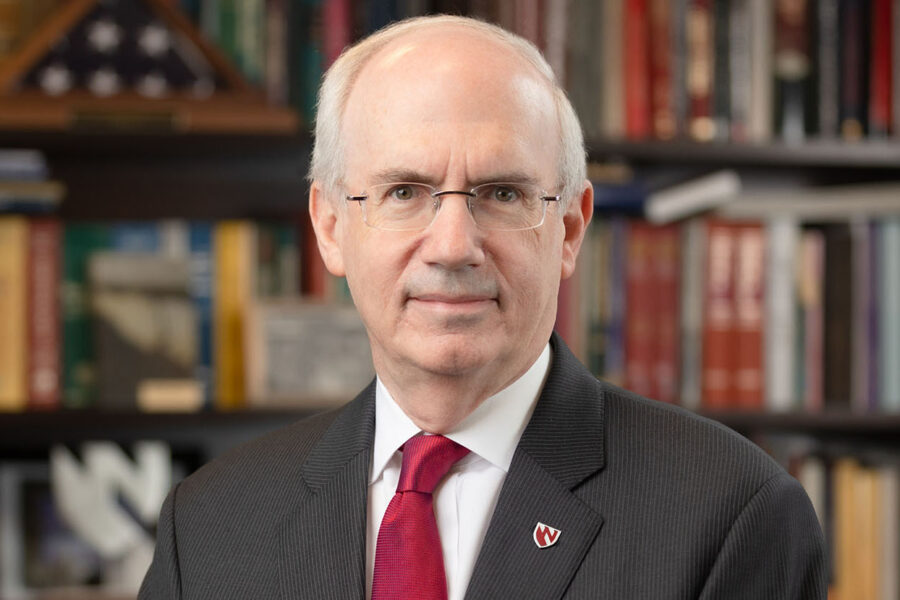Recent occurrences on college and university campuses across the nation have left many people feeling unsure or unsafe. UNMC leaders met with the campus community on Sept. 27 to discuss what UNMC is doing to promote a safe campus environment.
The campus community can see the recording of the forum here.
Topics ranged from the programs and plans in place to ensure the safety, sense of security and well-being for faculty, staff and students at all the UNMC campuses across the state and were addressed by a panel that included:
- Katie Schultis, UNMC student president and student regent;
- Steve Williamson, director of public safety support services;
- Diane Mack, director of emergency management for UNMC and UNO;
- Sarah Fischer, PhD, director of wellness programming;
- Phil Covington, EdD, associate vice chancellor for student success; and
- Dele Davies, MD, senior vice chancellor for academic affairs
“We are very clear in our messages, our core philosophies and values that charge us with creating a welcoming, inclusive campus, that provides a sense of belonging and well-being for faculty, students and staff. At the same time, we must be very thoughtful on how to enhance our campus security in a way that makes people feel that they belong and are safe,” said UNMC Chancellor Jeffrey P. Gold, MD, who moderated the program.
Each panelist encouraged faculty, staff and students to reach out if they need help.
Katie Shultis, UNMC student president and student regent addressed students specifically, telling them that if they ever have an issue dealing with safety or well-being and are unsure or apprehensive about who to call, they can reach out to her.
“My email and my vice-president’s email are on the student success page, and every college has senators that you are welcome to reach out to,” Shultis said. “We can be your first point of contact for any concerns you might have.”
Dr. Covington echoed Shultis’ remarks noting that while much is focused on physical safety, there is a critical need to have a welcoming environment and for psychological services.
“We have a multidisciplinary team to help connect students with what they specifically need,” Dr. Covington said.
In light of the string of thefts of personal belongings from various vehicles earlier this year, it was noted that in recent months those numbers have been reduced dramatically with the placement of cameras and extra patrols in parking lots and garages.
People were reminded to be vigilant of their surroundings, to not allow others who do not have a badge to tailgate into a building behind them and pay attention when crossing a street.
“If you see something, say something; if you hear something, do something,” Dr. Gold said.
Diane Mack detailed an emergency preparedness guide which soon will be available online and posted in every classroom and office suite that features basic information on what to do in a number of emergencies, from an active shooter to a fire to a tornado.
And Sarah Fischer, PhD, encouraged anyone who may be dealing with a mental health issue to contact the UNMC Wellness Team and they would connect the person with the appropriate services.
“Our main priority is to keep this campus as safe as possible while also keeping it as welcoming as possible,” said Dele Davies, MD.
Be aware of how you can help others, he said. Reach out to public safety, and do a walkthrough of your area so you are prepared to respond to an emergency. He also encouraged the campus community to utilize the numerous resources available.
“It’s the little details in the resources available to us that can help prepare you for an emergency, hopefully you will never need them but it’s better to be prepared,” Dr. Davies said.
